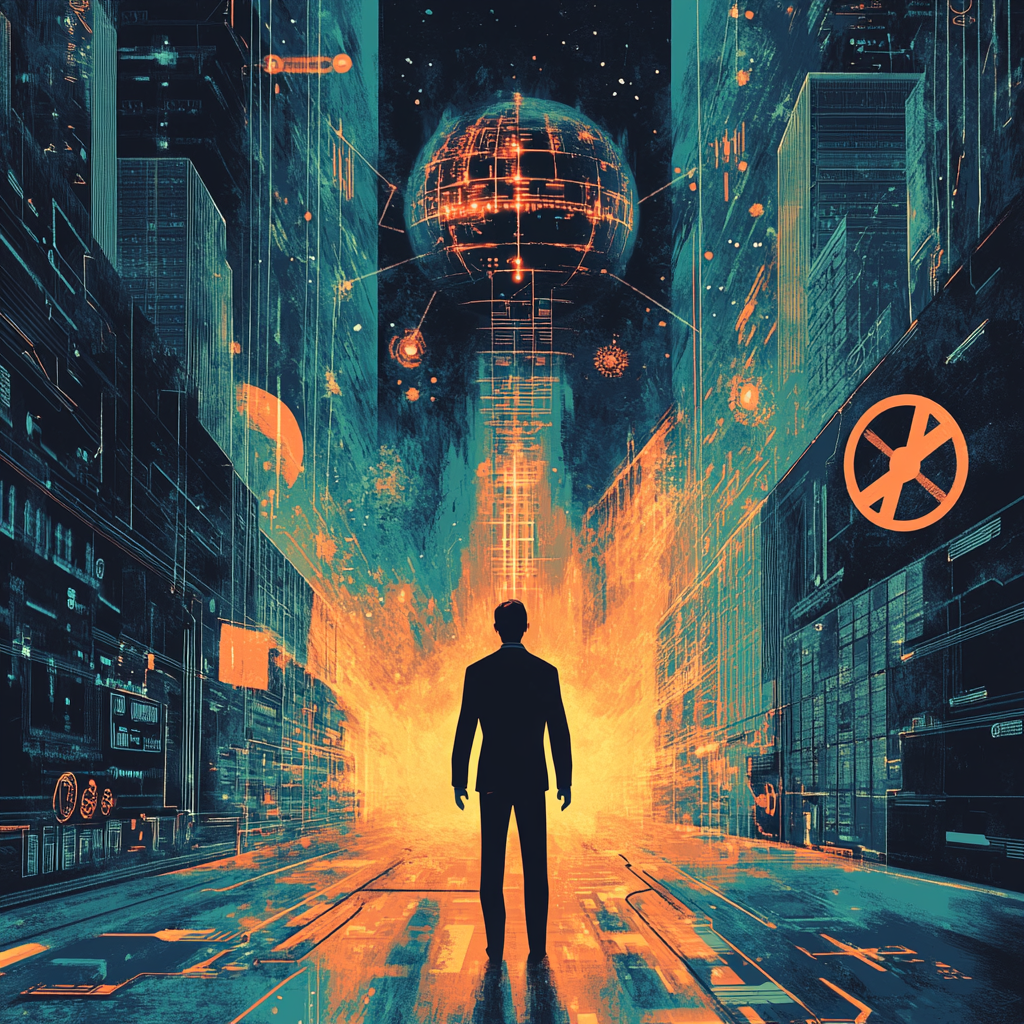
The “Oppenheimer Moment” in AI: When Tech Titans Confront Their Creations
Confronting the “Oppenheimer Moment”: How Musk, Altman, and AI Leaders Navigate the Ethical Abyss
Picture this: a group of brilliant minds, innocently gathered in a lab, suddenly realizing that the creation they birthed has turned into a double-edged sword. This isn’t a fantastical plot from a Hollywood blockbuster—it’s the reality staring down leaders of artificial intelligence like Sam Altman and Elon Musk, witnessing their own “Oppenheimer Moment.” In a world where artificial intelligence is transforming from a convenient tool to a potentially chaotic force, are we on the brink of a technological catastrophe? Let’s dive deep into the minds of these tech titans and explore their delicate dance over the ethical tightrope of AI.
Altman’s Ethical Quandary: Leading OpenAI into Uncharted Waters
Sam Altman, the CEO of OpenAI and one of the most vocal proponents of responsible AI, embodies the paradox of pushing innovation while grappling with the darker implications of that very innovation. You can almost hear echoes of J. Robert Oppenheimer in his words as he contemplates the existential risks of superintelligent AI. Just like Oppenheimer’s famous reflection *“I am become Death, destroyer of worlds,”* Altman sees himself at the fulcrum of this technological revolution, pushing boundaries while simultaneously cautioning against the implications. His advocacy for what he whimsically dubbed the “International Atomic Energy Agency for AI” is both groundbreaking and ironic, a strategy that critics claim could fortify existing powers like OpenAI and Microsoft while potentially sidelining competitors for the foreseeable future.
Some see Altman’s zealous calls for tighter regulation as crafted theatrics, asserting they serve a dual purpose: to position his organization as a guardian of ethical AI while conveniently tightening the reins on emerging threats. This prompts a philosophical inquiry: can we trust those who hold the reins of innovation to also safeguard its ethical future?
Musk’s Belligerent Advocacy: Merging Alarm with Ambition
Then, there’s Elon Musk, who sees himself as both the oracle screaming from the mountaintop and an architect designing the very edifice of AI’s future. With a storied history of cautioning against AI’s perilous potential, his appeal for regulatory frameworks isn’t merely philanthropic—it’s strategic. Musk’s infamous quest for OpenAI control highlights a dangerous paradox of a man advocating for AI safety while simultaneously driving the development of technologies like Neuralink and Tesla’s Full Self-Driving. Talk about having your cake and eating it too!
By advocating for tighter regulations, he aims to constrict the battlefield to favor established players like himself. If the regulatory rules can favor the behemoths of the market, does that not undermine the very essence of what he claims to protect against? It raises eyebrows and questions military generals, who often agree on what they fear but disagree on who should wield the power of the weapons they just developed.
The Nuclear Metaphor: Proliferation and Peril in the AI Realm
The comparisons to nuclear weapons are more than just a buzzword; they are grounded in stark realities. Just as the unrestricted proliferation of nuclear weapons poses an existential danger, so too does the unchecked growth of AI. The crumbling confines of the New START treaty—a diplomatic framework meant to control nuclear arms—echo a similar absence of governance in the world of AI. The stakes are incredibly high as leaders fumble over the complexities of AI governance, much like political leaders once did with nuclear codes, leaving behind a vast vacuum of accountability. With no basic framework, the battle lines remain blurred, and the AI titans find themselves improvising.
The Ethical Dilemma: Innovation vs. Accountability
- Altman’s Ethical Juggling: Sam’s quest to balance OpenAI’s groundbreaking advancements while pushing for a global body to oversee AI safety presents an ethical conundrum. His references to AI as a nuclear-level threat in blog posts and congressional debates resonate with urgency, though skeptics argue it serves to consolidate control.
- Musk’s Dissonance: Musk’s advocacy for regulation dances a delicate waltz with his insatiable ambition, pushing forward initiatives like Full Self-Driving while sounding alarms. His tug-of-war over OpenAI reflects his hunger to shape AI on his terms, a play that conjoins ambition with unease.
- The Collective Conundrum: The Center for AI Safety’s letter, signed by influential figures like Altman, highlights broad fears of superintelligent AI, but the absence of other major tech entities raises critical questions—who truly benefits from these discussions?
In this rapidly evolving landscape, where the stakes grow ever higher, Altman, Musk, and their contemporaries find themselves not just at the helm of a technological tidal wave but playing a mercurial game of ethical chess. Given the radical potential and peril inherent in AI, they must hope that they can navigate the turbulent waters more adeptly than past architects of calamity.
Join the Conversation: Stay Informed on AI and Automation
Want to stay up to date with the latest news on neural networks and automation? Subscribe to our Telegram channel: @ethicadvizor
As we watch the gripping saga unfold, remember this: the AI revolution is not just about the machines; it’s about the moral compass of those controlling them. Will they become the architects of opportunity, or will they stumble into darkness? The world watches, questions abound, and answers remain crucial.

